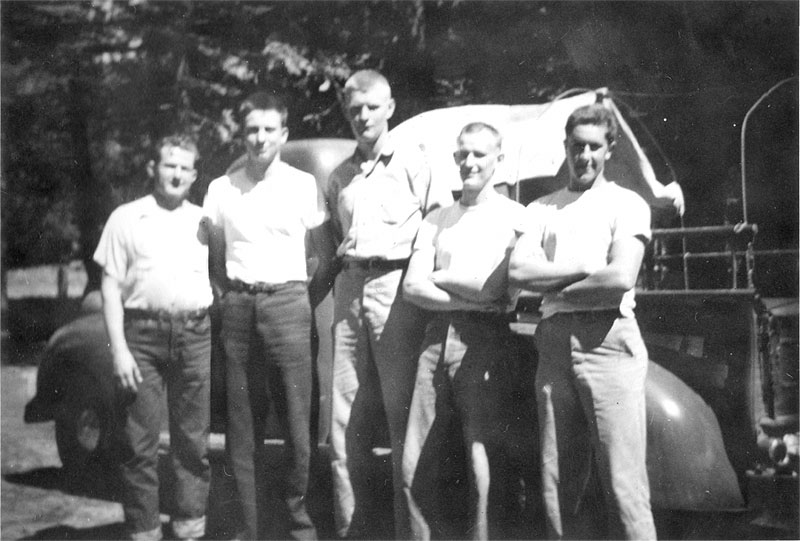
A wilderness firefighting crew of conscientious objectors in 1945, who were clearly doing it all wrong. (WikiMedia Commons)
There’s an emerging strain of thought in contemporary, politicized U.S. Christianity, which holds that freedom of religion logically must permit pharmacists to refuse to fill prescriptions for birth control pills if they believe that birth control is wrong; or, more lately, for people who provide wedding-related services to refuse to serve gay or lesbian couples if they oppose same-sex marriage. These refusals of service are an expression of conscience, the reasoning goes, and you can’t just force someone to violate their conscience, even if it’s in the course of doing their job.
This thinking would have come as quite the surprise to the Christian tradition in which I was raised. Mennonites know something about conscientious objection, since they’re pacifists—so, rather than take up arms, my grandparents’ generation spent the Second World War doing alternative, nonviolent service in forestry and soil conservation, in public health and psychiatric care, as wilderness fire fighters, and even as human guinea pigs. That is to say, they felt it was wrong to kill, so they opted to do hard, unpleasant, even quite dangerous things rather than take a job that required them to kill.
But clearly what those COs should actually have done was sign right up for the draft, work their ways through boot camp, ship out to the front—and then lay down their arms. From what I can tell, the current generation of “dissenters” would say it was only a free exercise of their Constitutional rights.◼
